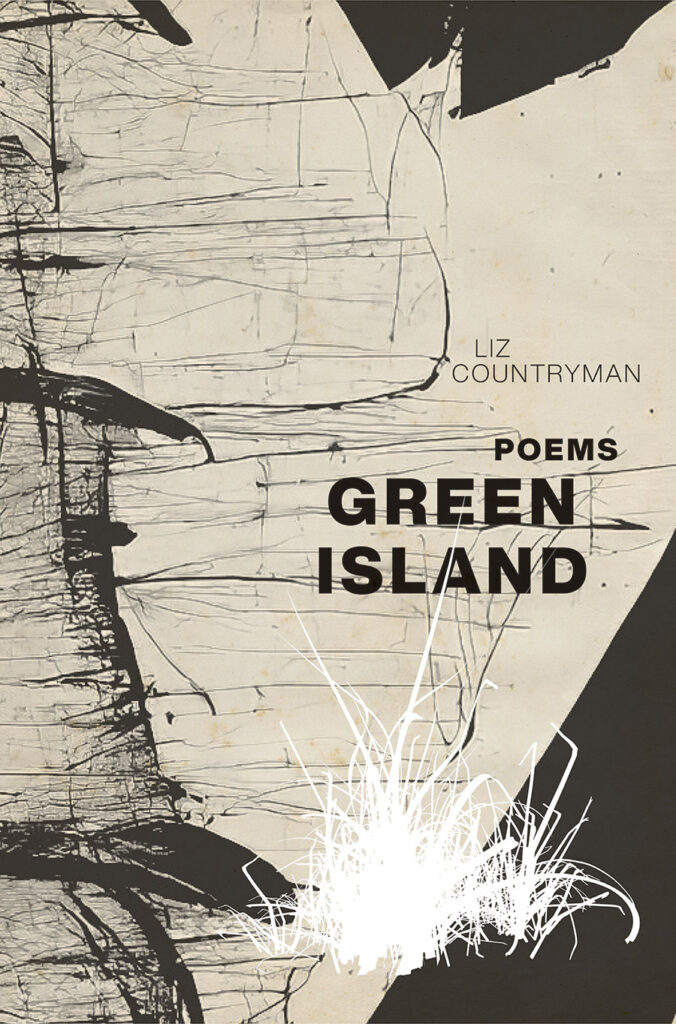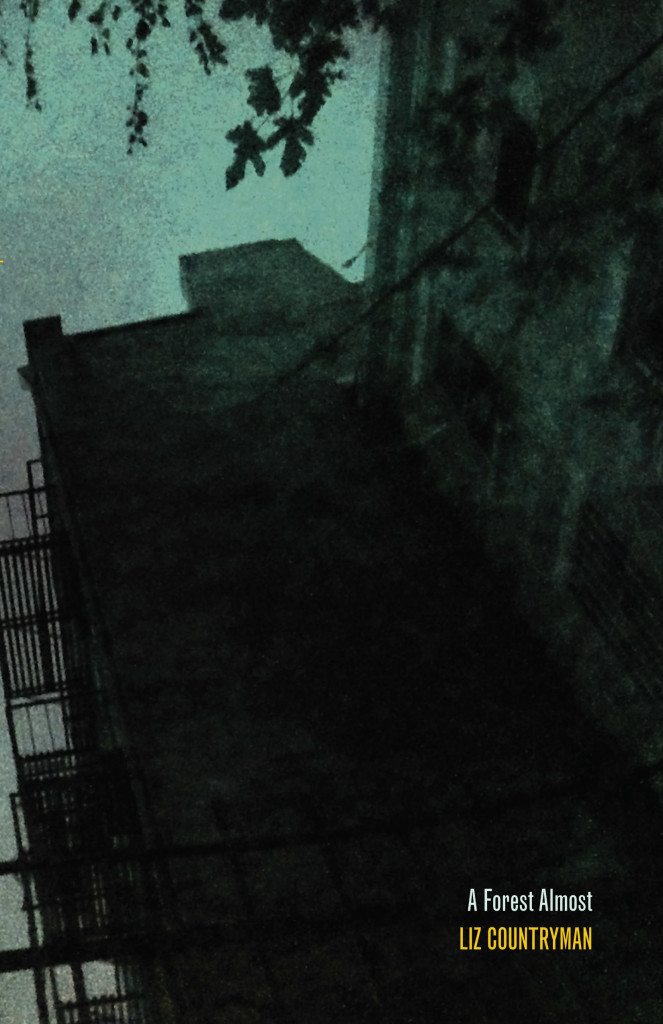Green Island
 (published by Tupelo Press)
(published by Tupelo Press)
Praise for Green Island:
“Load every rift of your subject with ore,” wrote John Keats to P.B. Shelley just six months before his death. It’s this line that I thought of again and again while reading Liz Countryman’s capacious, ore-filled lines. Ore: a rock or sediment that can, with effort and skill, be treated, refined, forged into something of great value. The poet’s ore is memory, or memory and thought, or memory, thought, sensation, and desire: all these elements are richly moving through nearly every moment of this astounding book.
Liz Countryman mines childhood for its longing, its intense sensations, its loneliness—a father’s face at a drive-through, “a pile of tethered whipped-around balloons”—but she also stays resolutely in the present, finding there the parent’s “soft anxiety,” the perennial wish for stasis and movement at once. “I want everything to live,” she confesses, and it’s because of this desire that the poet is compelled to describe, to give life to the dead, to dig in the garden, to rub her hands across the wood of a table, to “shove my face into distance like a bouquet.” This voracious relationship to the here and now presses firmly into and against the need to understand the past and all the longings it has deposited, like a residue of silt, on the skin.
I found myself so deeply moved by this tension, so awed by the intelligence that balances there between memory and present-time, that I frequently paused in my reading to at once note the world around me and to recall my own childhood—the precise scents, sights, and sounds of both. It was as if with this book, Elizabeth Countryman had granted me the gift of my own forgotten life.
— from the Judge’s Citation by Julie Carr
“Liz Countryman’s powers of description remind me of both Virginia Woolf and Bernadette Mayer: she looks at the ordinary through the lens of history, seeing in a dresser, a seashore, a clearing the necessary and ruthless work that is time. She sees the past always staring back, and the challenge of her poems is to make a more meaningful life out of, and despite, the losses and failures of that past—the twentieth century, hers and ours. I am in awe of the masterful poise of these poems—insistently gendered, often wry, always wise, full of grief and fearless confrontation and full of the poet’s “desire to be lifted.” Green Island is a devastating book and a beautiful book, and it is a book to hold close and read again.”
—Jennifer Chang
“In Green Island, Liz Countryman’s beautifully perceptive and formally adventurous second book, she investigates how a ‘commitment to a disoriented wonderment,’ like an ‘arrogant fog,’ had once ‘obscured the physical reality of what passed.’ In doing so, Countryman does not give up surprise and ‘wonderment’ nor disorientation so much as she finds them in ‘undiscovered’ places as near at hand as an ‘embrace’ or when placing a ‘kiss [on] the inside of a turtleneck.’”
—Michael Collier
“You come out of a cave into a forest. Within the forest you find a clearing. The clearing opens onto a lake. The lake, you realize, is the ocean. Though you can’t see it, you know that in the middle of this ocean there’s a green island. It’s called Green Island. Your father had the T-shirt. You can see it in your mind because you were there. Or you were it, you were Green Island. You aspired to be. You don’t any more. But you remember the aspiration. This memory of an aspiration is a private map of who you were. Liz Countryman’s Green Island is the map of who you are now.”
—Paul Killebrew
A Forest Almost
Praise for A Forest Almost
Liz Countryman makes a charming sort of grace out of soul-searching—one part bemused, one part anxious, one part mischievous. To fall for such charm is to admit once and for all that only music will save us. I admit it. I love how fiercely this book believes in what is most private about us, our imaginations, and how it uses its musical power to transmit energy outward. That energy is so very strong, but capable too of the oddest, most bittersweet vulnerability at times. It moves, and moves, and moves.
—David Rivard
In Countryman’s stark, startlingly direct objectivity, every clarity crumbles before our eyes into increasingly subjective approximation… It is, I think, Countryman’s canny, contentious, richly idiosyncratic diction that lures me further and further into the “almost” that I realize indeed is a forest surrounding me. This realization, disruptively difficult as it is to swallow, has given me a new kind of nourishment that I hadn’t realized I’ve been so very hungry for.
—Rusty Morrison
It’s not juxtaposition that’s structuring things so much as sequences of the perceiving mind minutely shifting, leading us gradually toward feeling more fully what it is to be sentient… These poems are brave. They make us brave.
—Elizabeth Arnold
Countryman’s fantastic sense of pace matches the way that modern bodies are moving ostensibly untouched (except for legions of poisons crossing each placenta & in our water; except for car accidents; except for bullets; except for, I mean, everything, everything) through time.
—Darcie Dennigan, Full Stop
One of the few books I’ve read in some time that has caused me to jolt, and go back, rereading what had struck in such unexpected ways… Moving between meditation and observation, these short essay-poems are breathtakingly, concurrently, intimate and objective, articulating such a clarity and precision to get even indirectly to the point.
—Rob McLennan, Rob McLennan’s Blog

